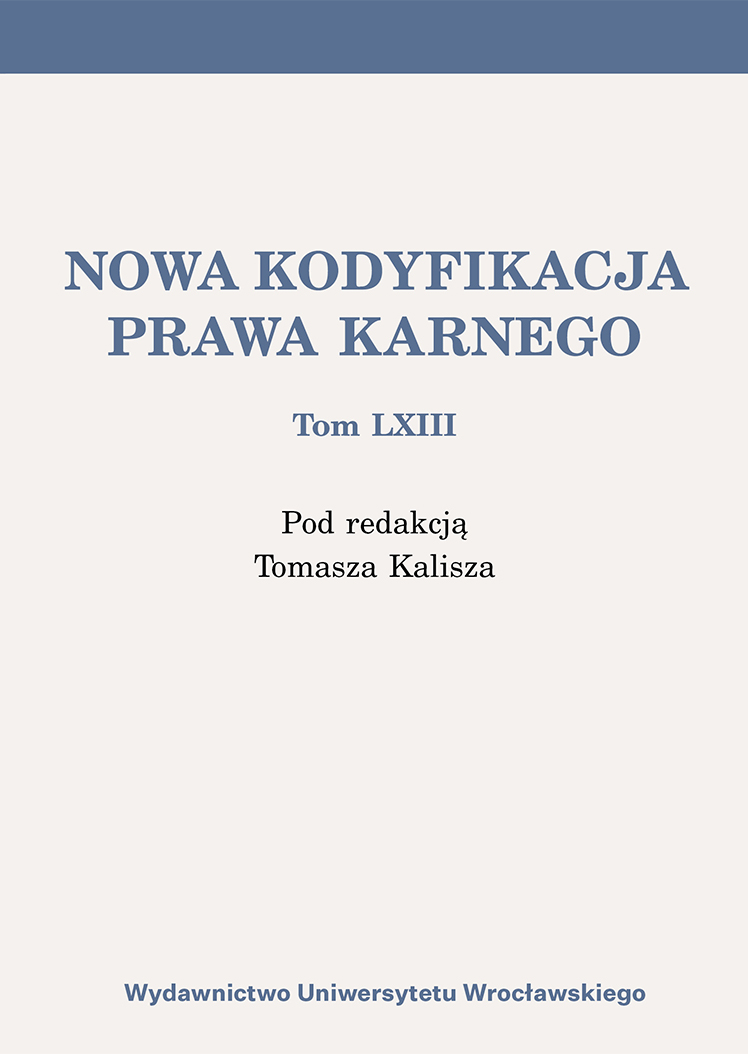Prognoza kryminologiczna w polityce karania
Criminological forecast in punishment policy
Author(s): Grzegorz WicińskiSubject(s): Criminology
Published by: Wydawnictwo Uniwersytetu Wrocławskiego
Keywords: punishment policy; criminological forecast; criminal law; executive criminal law; penitentiary law; the principle of individualisation; goals of punishment; rehabilitation; social readaptation;
Summary/Abstract: Punishing perpetrators of crimes takes place in two stages. The first is the procedure leading to a court judgment in a specific case (jurisdictional proceedings) and the second relates to the execution of a final ruling (enforcement proceedings). In terms of the procedural as well as the content-related aspects, both types of proceedings are based on the provisions of the Penal Code and the Executive Penal Code. In the light of these provisions, the primary purpose of punishment is social readaptation of the perpetrator (reintegration). Such legal regulations prove the coherence of normative solutions in the area of criminal law in the broad sense. There are close relations between criminal law and the policy regarding the execution of penalties, in which the legal norm on the one hand reflects the assumptions of the criminal policy, and on the other — serves its implementation. Punishing perpetrators is a prospective action (with a view to the future), which by nature presupposes the need for individual criminological forecasting in terms of selecting the means and methods of impact as well as the future behavior of the perpetrator. Therefore, criminological forecasting must also be convergent and complementary in the area of punishment policy, which in turn confirms the thesis about systemic coherence of law and punishment policy.
Journal: Nowa Kodyfikacja Prawa Karnego
- Issue Year: 2022
- Issue No: 63
- Page Range: 77-109
- Page Count: 33
- Language: Polish

